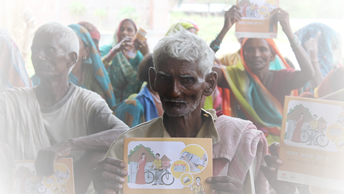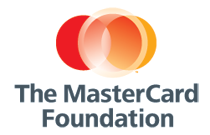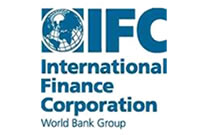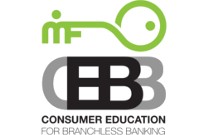What?
HOW CAN WE HELP YOU?
What financial inclusion obstacle are we supporting low-income people to navigate? What financial capability are we attempting to enable or develop? What – gives you access to MFO’s select publications organized around the content of a financial education curriculum or training manual. You can also gain access to the full set of Global Financial Education Program materials here.
Not finding what you are looking for? Click here.
Garment Worker Diaries: Living Wage Calculation, Methodology
Beginning in mid-2022 we began using data from the Garment Worker Diaries study in Bangladesh to help us calculate the wage a garment worker living there would have to earn to lead a decent life. This living wage range refers not only to the physical, mental and social nourishment a decent wage provides, but also to the fact that the wage calculation itself could be compared to a living, breathing phenomenon.
In this week’s Garment Worker Diaries blog, we discuss why we believe a living wage range needs to be updated from time to time, and for the calculations used to determine that range to also be subject to update and refinement when necessary. Despite the clothing itself, wages are one of the most tangible products of garment workers’ labor, and something they actually get to take home with them. Wages are a part of workers’ daily lives, and those wages’ ability to sustain life in a decent manner should never be taken for granted.
As always, you can send any questions you have for MFO, SANEM, the workers or about the project to questions@workerdiaries.org.
Warning: count(): Parameter must be an array or an object that implements Countable in /home/microf13/public_html/wp-content/themes/mfo/modules/looking_for_something_query.php on line 51

Workplace Hazards and Abuse
In this week’s Garment Worker Diaries blog we discuss the answers to questions workers in Bangladesh answered for us regarding dangers in the workplace, both occupational and interpersonal. The answers suggest there are opportunities to improve workers’ confidence regarding how to properly respond to certain workplace accidents, and also in the way workers and management communicate about such safety issues. And regarding certain kinds of abusive interactions between workers, it is important to note that women were somewhat more likely to report an abusive encounter than men and to report that such encounters occur more frequently. Men were also far more likely than women to be identified as the person committing the abuse.
As always, you can send any questions you have for MFO, SANEM, the workers or about the project to questions@workerdiaries.org.
Warning: count(): Parameter must be an array or an object that implements Countable in /home/microf13/public_html/wp-content/themes/mfo/modules/looking_for_something_query.php on line 51

Towards a Sustainable Growth of the RMG Sector of Bangladesh
This week’s Garment Worker Diaries blog is the 4th and final post in a series guest-written by our partner in Bangladesh, SANEM. The series, and this blog in particular, broadly focus on the challenges the ready-made garment industry in Bangladesh faces, and the opportunities available there to propel the industry, and garment workers themselves, into sustainably competitive futures. By sustainable, we of course mean that workers, their environments, and their skill sets are to be cultivated and allowed to flourish, rather than exploited and left to wither.
This blog post can also be read in Bangla, here.
As always, you can send any questions you have for MFO, SANEM, the workers or about the project to questions@workerdiaries.org.
Warning: count(): Parameter must be an array or an object that implements Countable in /home/microf13/public_html/wp-content/themes/mfo/modules/looking_for_something_query.php on line 51

Well-being of the RMG Workers in Bangladesh: Some Key Issues
This week’s Garment Worker Diaries blog, again guest-written by our partner SANEM, focuses on perhaps the most important aspect of the RMG industry’s mandate to comply with new Corporate Sustainability Due Diligence directives being formulated in areas such as the European Union: worker well-being. This 3rd blog picks up where SANEM’s previous two blogs (which you can read here and here) left off, which was with a discussion of what the new CSDD directives mean for Bangladesh, and how the RMG industry there can evolve to ensure that workers are seen as integral components of the industry’s overall health.
This blog post can also be read in Bangla, here.
As always, you can send any questions you have for MFO, SANEM, the workers or about the project to questions@workerdiaries.org.
Warning: count(): Parameter must be an array or an object that implements Countable in /home/microf13/public_html/wp-content/themes/mfo/modules/looking_for_something_query.php on line 51

Complying with the EU’s HREDD regulations: Challenges and Way Forward
This week’s Garment Worker Diaries blog post discusses how Bangladesh’s ready-made garment sector might best comply with the European Union’s Human Rights and Due Diligence (HREDD) directives (the draft of EU Directive on Corporate Sustainability Due Diligence, CSDD). It is a continuation of last week’s blog post and it has also been written by our collaborators at SANEM. As with last week’s post, where the macro-level content was regulatory and broad in scope, the inherent admission is simple and powerful, and it is that the well-being of workers matters.
As always, you can send any questions you have for MFO, SANEM, the workers or about the project to questions@workerdiaries.org.
Warning: count(): Parameter must be an array or an object that implements Countable in /home/microf13/public_html/wp-content/themes/mfo/modules/looking_for_something_query.php on line 51







